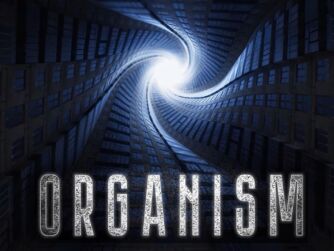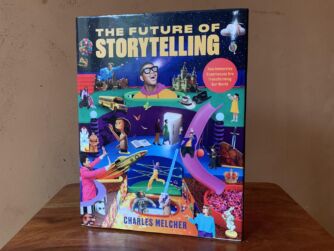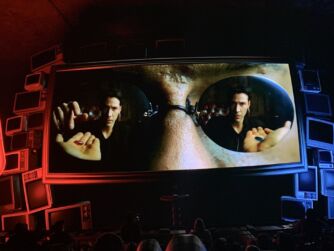Ally Maque of PixelWhipt & ASMRrequests talks about her new VR video show called VirtuAlly.
 Ally wants to help bring virtual reality to the mainstream by producing a show that covers the weekly highlights of VR news. She talks about coming from the world of producing Autonomous Sensory Meridian Response (ASMR) videos where there is a heavy focus on producing binaural audio content. She talks about some of her VR insights from the process of producing first-person, immersive media like her sci-fi ASMR video called Departure.
Ally wants to help bring virtual reality to the mainstream by producing a show that covers the weekly highlights of VR news. She talks about coming from the world of producing Autonomous Sensory Meridian Response (ASMR) videos where there is a heavy focus on producing binaural audio content. She talks about some of her VR insights from the process of producing first-person, immersive media like her sci-fi ASMR video called Departure.
She talks about some of her favorite VR experiences including Sensa Peso, RedofPaw’s Totoro & Spirited Away demos, Windlands, and the Alien Makeout Simulator. Finally, she sees that VR could eventually do anything and will change so many aspects of a variety of different industries.
Here’s the first episode of VirtuAlly:
If you’re curious to learn more about ASMR then this Vice article on the roleplay subculture of ASMR is a good primer. Or here’s a NSFW cartoon explaining ASMR that Ally says is “Hands down, best explanation of ASMR I’ve ever seen.”
Rough Transcript
[00:00:05.452] Kent Bye: The Voices of VR Podcast.
[00:00:11.956] Ally: My name's Allie, and I own, with my co-founder Josh, I own a multi-channel network for immersive content, and I also have a YouTube channel that's associated with the network, and I'm just interested in creating content for and about virtual reality.
[00:00:31.820] Kent Bye: OK, and so maybe you could first talk about how you got in this from the angle of ASMR and what that is.
[00:00:37.813] Ally: Sure. Would you like me to describe what ASMR is? Ooh, ASMR. This will take up the whole podcast. ASMR is an interesting phenomenon that happens to some percentage of the population, where when they hear, see certain stimuli, they get a kind of calming, sort of euphoric, almost a tingly sensation in their scalp, in the peripheral regions of their body. Many people use it for sleep, for insomnia, for anxiety. so I create ASMR videos to help people with that and I was really involved in that and I was making videos all the time and Josh and I one day had the crazy idea to try kind of a sci-fi themed ASMR video that was based in a had a storyline and it's really really cinematic and we didn't know if this community of ASMR viewers would like it or want any more of it, so we just put it out as an experiment and it was really successful and really well liked and it was clear that we needed to keep doing it. And it was around that time that we realized how much of an obvious connect there was between ASMR content, especially story-driven ASMR content, and VR and virtual reality because there's a lot of, I'm talking to a camera, so I'm kind of, it's a first-person experience and in this sci-fi series, it's called Departure, You, the viewer, are actually the hero of the story, and you're experiencing it from a first-person point of view, and the characters are interacting with you, and the story is going on around you, for you.
[00:02:07.257] Kent Bye: And so, yeah, I guess there's an element of binaural audio. Is that a key aspect of the ASMR, of being able to actually hear what the sound would sound like, so you can actually positionally track where the sound is coming from?
[00:02:18.712] Ally: It's not so necessary that you can't have a good experience without it, but for me, yes, I believe that it's key and it improves the experience a hundredfold to the point where I think that it's just much, much, much better to have the binaural audio so that you really feel immersed in what you're experiencing just from an audio standpoint.
[00:02:40.128] Kent Bye: Yeah, and so what do you think it is that people are craving that sense of intimacy and closeness and connectivity that having that ASMR type of audio is really giving them that extra sense of presence and actually being there?
[00:02:53.439] Ally: Yeah, yeah, I think you hit it on the head. It's anything that can get people as close to really being there as possible. And especially people who experience ASMR, I think for many, the ultimate goal is to feel it in real life. But those opportunities, you can't manufacture those. You can go get a haircut, and then someone's kind of moving around you and being soft and gentle, and that's really relaxing for a lot of people. But you can't really get it on demand. So in video, which is what we do, that's the type of ASMR we do, in video, You want to do everything you can to make it as much of a real-life experience as possible. And sound, especially for ASMR, is a huge, huge, huge part of that because the visuals are there. But for many people, the sounds are even more important.
[00:03:37.003] Kent Bye: Now, I guess from the perspective of a VR design perspective, it's interesting to talk to somebody who's really thinking about designing from the perspective of audio first, and then creating the experience around that. You also mentioned a show, I don't know if these are separate things, where you're doing these narrative 360 video episodes that are designed around the audio first, and ASMR experiences, and then the sort of more new show, or if they're kind of overlapping and being the same thing.
[00:04:04.263] Ally: They're completely different. The new show is not even really ASMR at all. It has nothing to do with it. It's just it's a way for me to channel my interest, my passion about VR and immersive content and just talk about what's happening because so much is happening. I spent a lot of time on the Oculus subreddit, both my partner and I do, and it's just day to day. You'll see. five new stories happening. There's so much, there's so much amazing stuff that's happening all the time around us. And so this was just a way, virtuality is the name of the show, is a way for me to just talk about it and get excited about it. But no, it has nothing to do with ASMR.
[00:04:38.327] Kent Bye: Okay, okay, so just to close the loop on that ASMR portion is that what were some of the insights that you had from some of the episodes that you created of the sci-fi themed ASMR? You know, what type of thing would you think is important for people to know about? In terms of looking at the audio first, how do you think that's going to change the type of VR experiences that you're creating versus if you weren't sort of thought of as a kind of like an afterthought?
[00:05:02.702] Ally: Well, they were talking about it in the panel earlier today with all of the Oculus guys. Every aspect of an immersive VR experience is important, and I feel that it's all equally important. So one of them can't be less focused on, if that makes sense. Audio is going to be just as important as what you're seeing, because in VR, especially, the goal, I think the goal should be to create as close to real-world experience as you can. And in the real world, when you're walking around and you're experiencing it, assuming that you don't have problems with your hearing or problems with your sight, assuming that is normal, generally, you're experiencing all that sensory input and it all contributes to the one experience of whatever it is you're doing, whether it's just washing your hands at a sink, you hear the sound of the water, you see the water running, that kind of thing, or making a sandwich, you see everything in front of you, you hear the sounds of slicing up your tomato or whatever it is, and it all contributes to the experience, it's all necessary.
[00:05:59.985] Kent Bye: And so tell me a bit more about the plans for your VR show and what you hope to do.
[00:06:05.148] Ally: Well, the idea in the first episode is going to be hopefully released tonight, if we're on time with the editing. We're almost done editing it. My plans are to release it on a weekly basis. It's going to be a really kind of fast-paced, kind of quick, 10 minutes or less, news kind of viewpoint show, where I'm not necessarily telling people stuff they haven't already heard about what's going on, especially people who are really staying current with VR news. the stuff I'll be talking about, a lot of them will probably have already heard about it, but it's just kind of a new perspective, and the idea is that it's just a little bit more accessible to, interesting for people who are really strong VR enthusiasts, but also accessible to people who are just starting to learn about it, and are not necessarily really tech savvy, because that can be a little heavy, a little dense, and maybe not super entertaining for the mainstream, and I want to see VR eventually expand out of the bubble that it's currently in into the mainstream world and to do that you're going to have to make it accessible to people who are not developers and people who are just consumers. So that's one of the main goals of Virtuality is to talk about VR in a way that's interesting for people who know about VR but also interesting to people who don't really but they want to.
[00:07:19.233] Kent Bye: I think one of the interesting things about the phase of VR right now is that it's primarily a lot of games and video gamers that are creating experiences but there's also educational and other sort of realms and so maybe can you give me a bit of a sense of the type of stories or VR experiences that you might be covering in your show?
[00:07:37.398] Ally: I'm gonna cover anything that excites me. The idea is here's what I found interesting this week that's going on whether it's the story that I've covered most recently is that Keanu Reeves is co-producing a television show. It's just been announced he's about to co-produce a television show about virtual reality and that sounds really cool. So I talked about that. I talked about who's behind it, what the concept of the show is. I think that's relevant and interesting and then in the same 10-minute block I also talk about the implications of the Gear VR, the release of the Gear VR and what that means for VR and for consumers and what it doesn't mean and that kind of thing. So just anything that I think is worth talking about, worth hearing about.
[00:08:16.067] Kent Bye: What are some of the VR experiences that you've had that really stand out for you?
[00:08:19.845] Ally: Sons of Peso was huge. That was a game changer, obviously. They're super, super talented people. I am a huge fan of Red of Paw, Nick, who created the Totoro bus stop demo and also the Spirited Away boiler room. I'm a big, big Miyazaki fan. So those were wonderful. And I think things like that are important in the goal that I mentioned, the goal of getting this into the mainstream. things that people would be excited to experience all around them. Things like Totoro. So yeah, those are big standouts for me. And I love the Windlands game. Oh my god, it's awesome. You're given kind of a sticky Spider-Man-esque mode of travel on treetops and whatnot, and it's really, really fun. So that was a cool game. And then, of course, the alien make-out simulation. Everyone has to try that and see if you can please the alien lady. Yeah, I like that one a lot.
[00:09:14.374] Kent Bye: And finally, what do you see as the ultimate potential for virtual reality? What it could provide and how you want to help steer it in that direction?
[00:09:21.736] Ally: That's a big question. Ultimate potential is, I can't fathom that. I want to try, like, lay awake at night trying to think of all the possibilities, but I feel like they're endless. I think that VR in medicine is a beautiful thing, in education is a beautiful thing, and just entertainment. I think that once it is perfected and it's adopted by more folks, more people, we could potentially do anything. and change the face of so many different industries. Like I said, entertainment, medicine, education. And I want to contribute to that in any way I can. I'm most interested in entertainment. Obviously, I'm not a doctor or a teacher, but I just want to be a part of it. I want to be on top of it when it explodes, which it definitely will soon.
[00:10:03.771] Kent Bye: Great. Well, thank you.
[00:10:05.733] Ally: Thank you. Thanks for talking to me.




